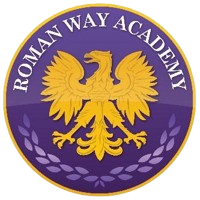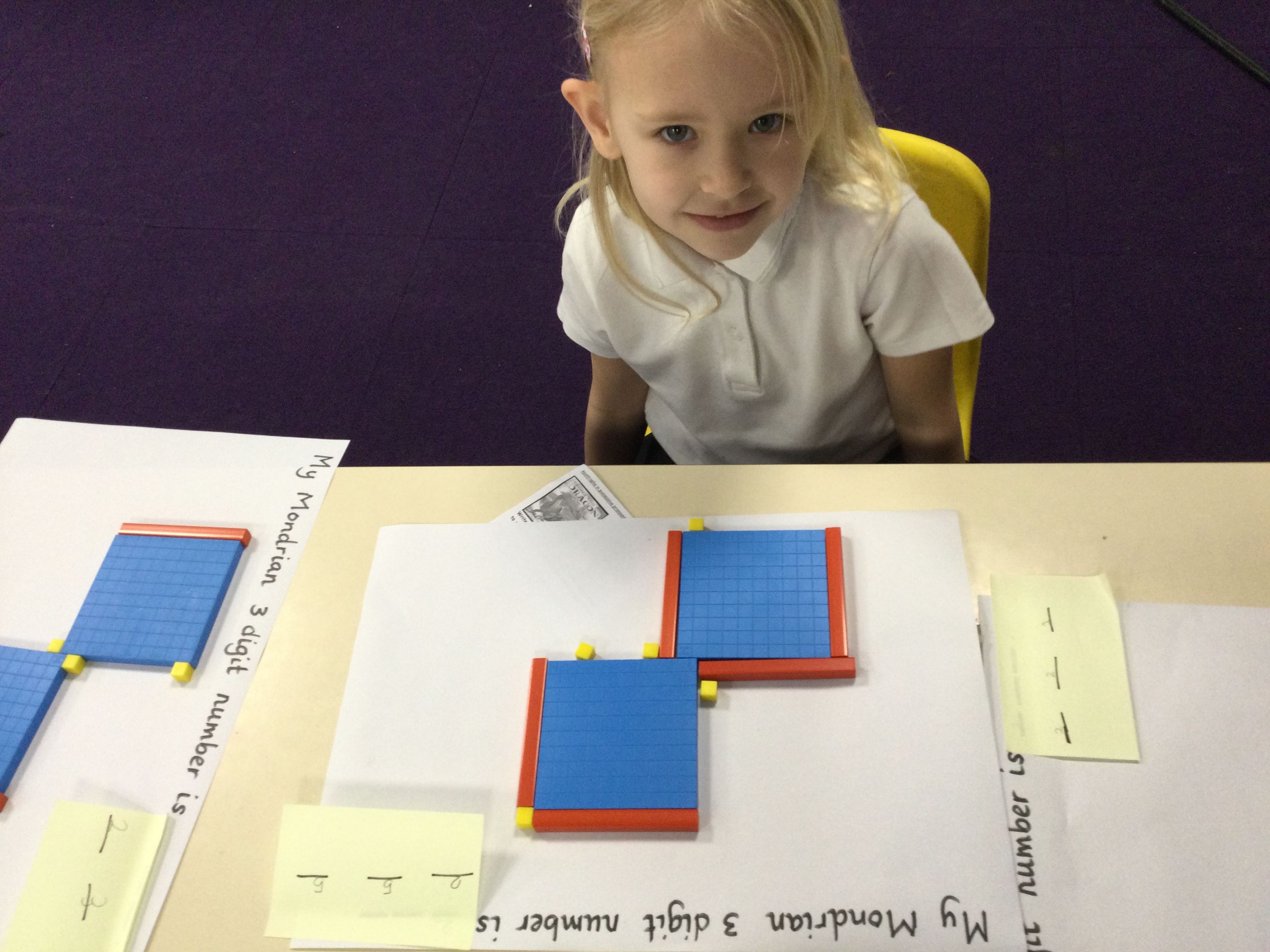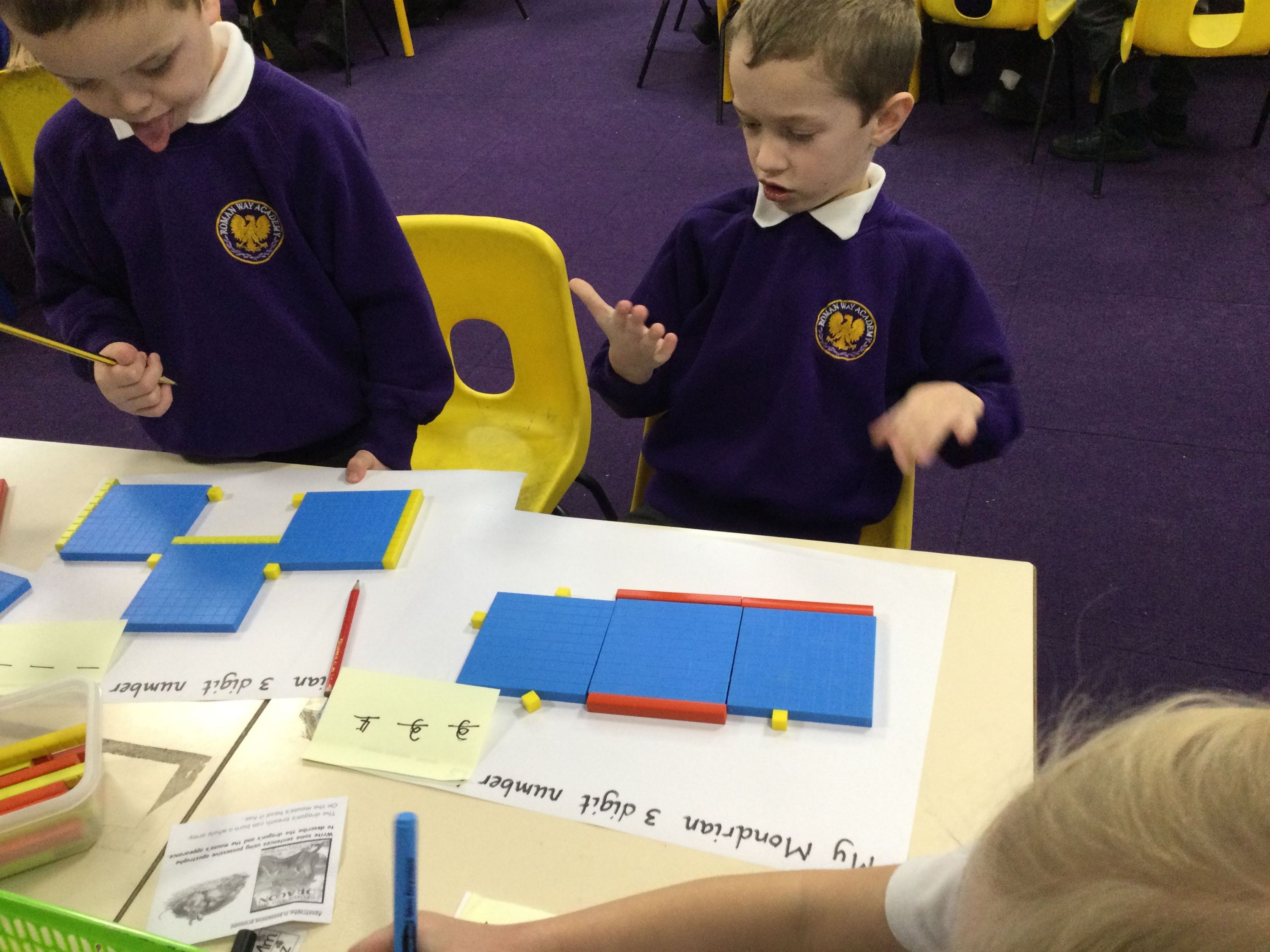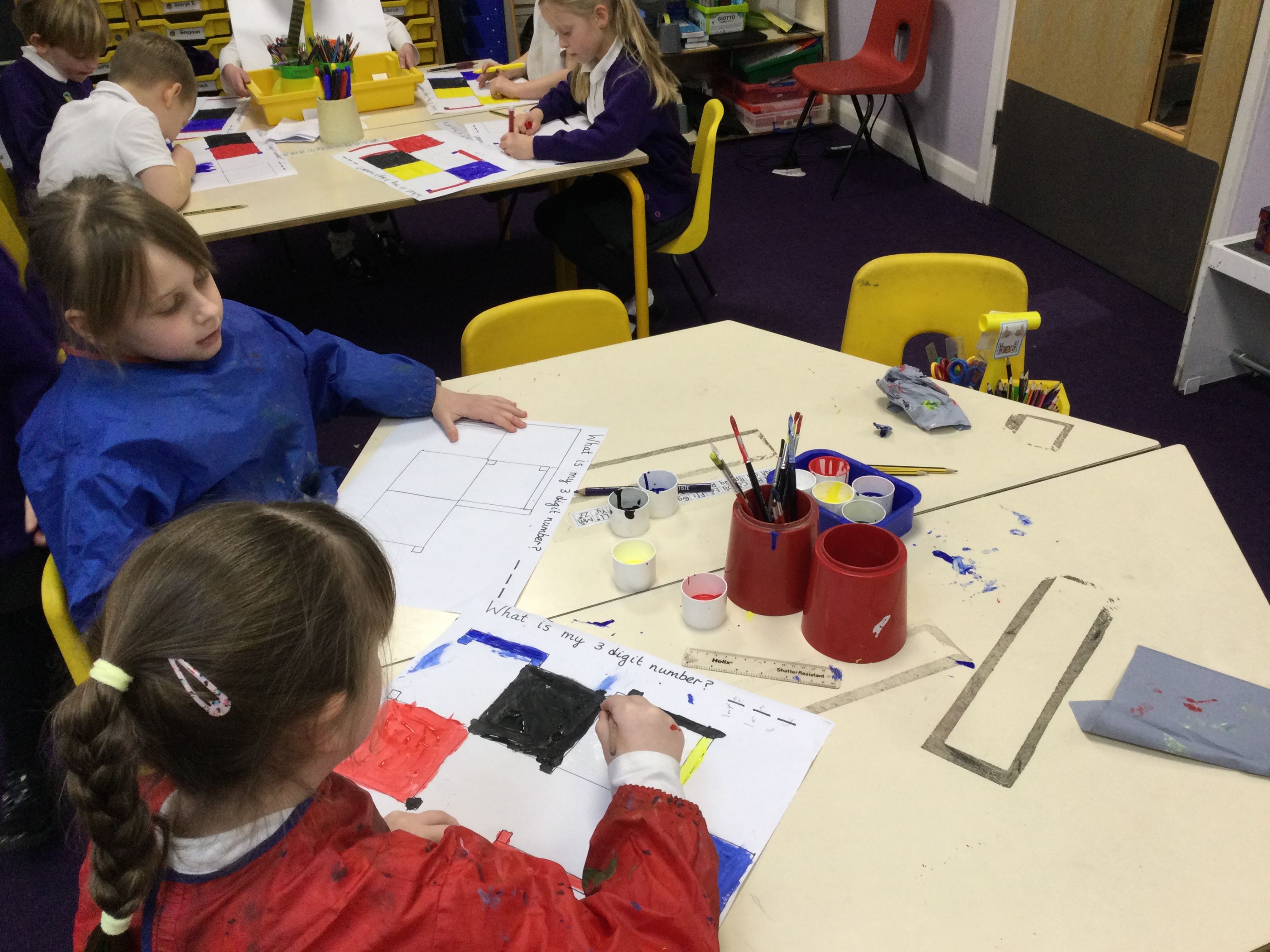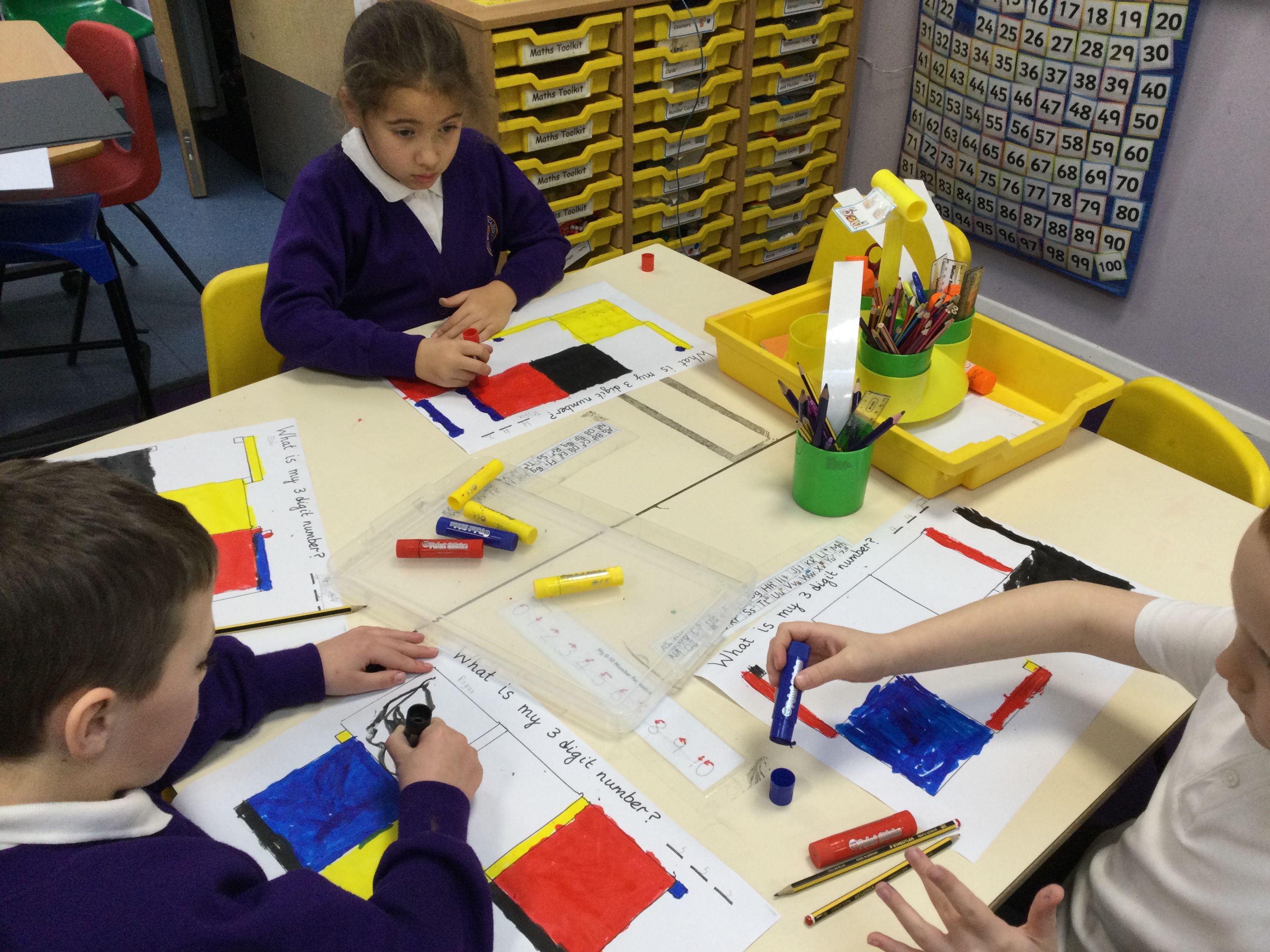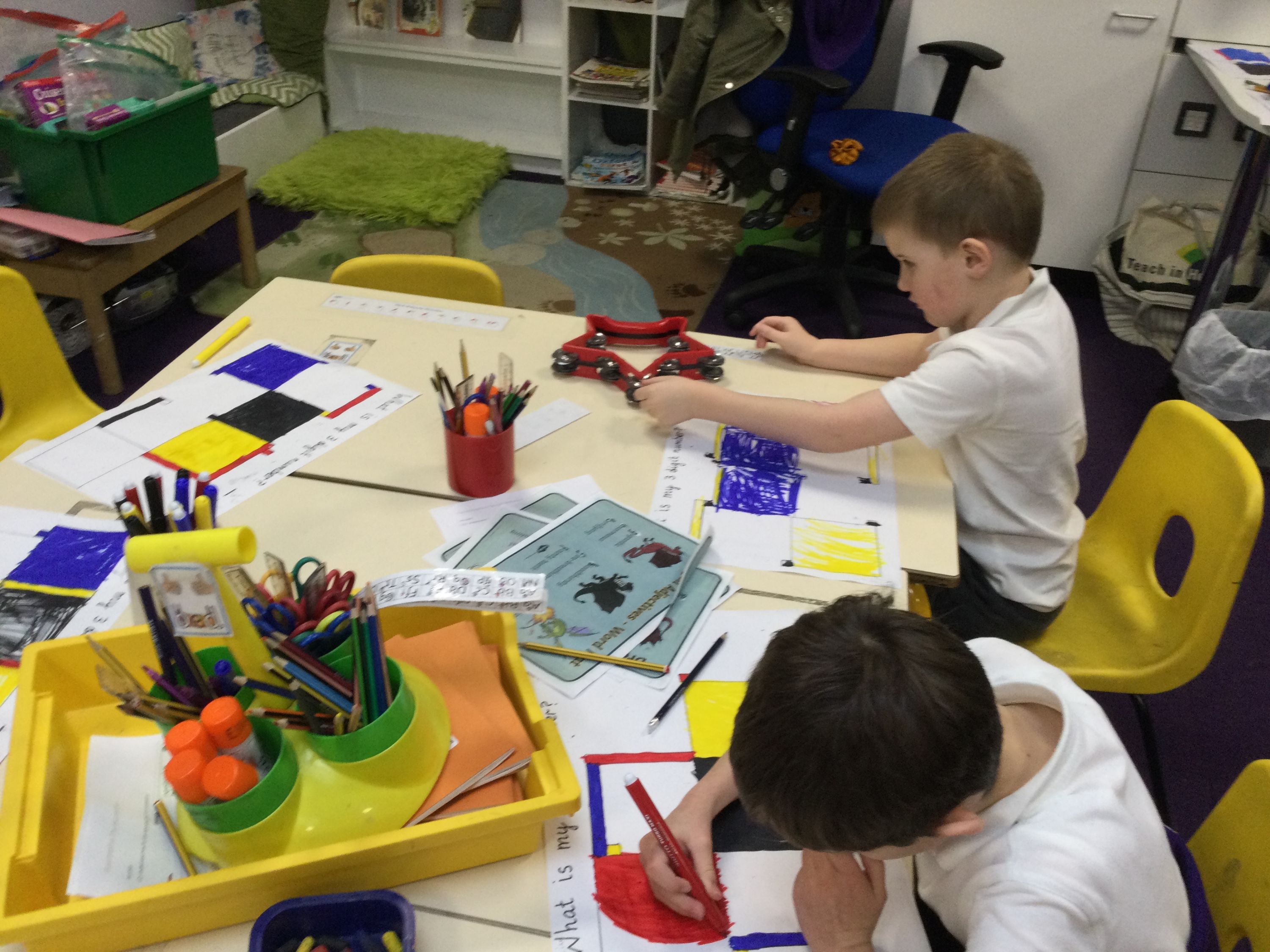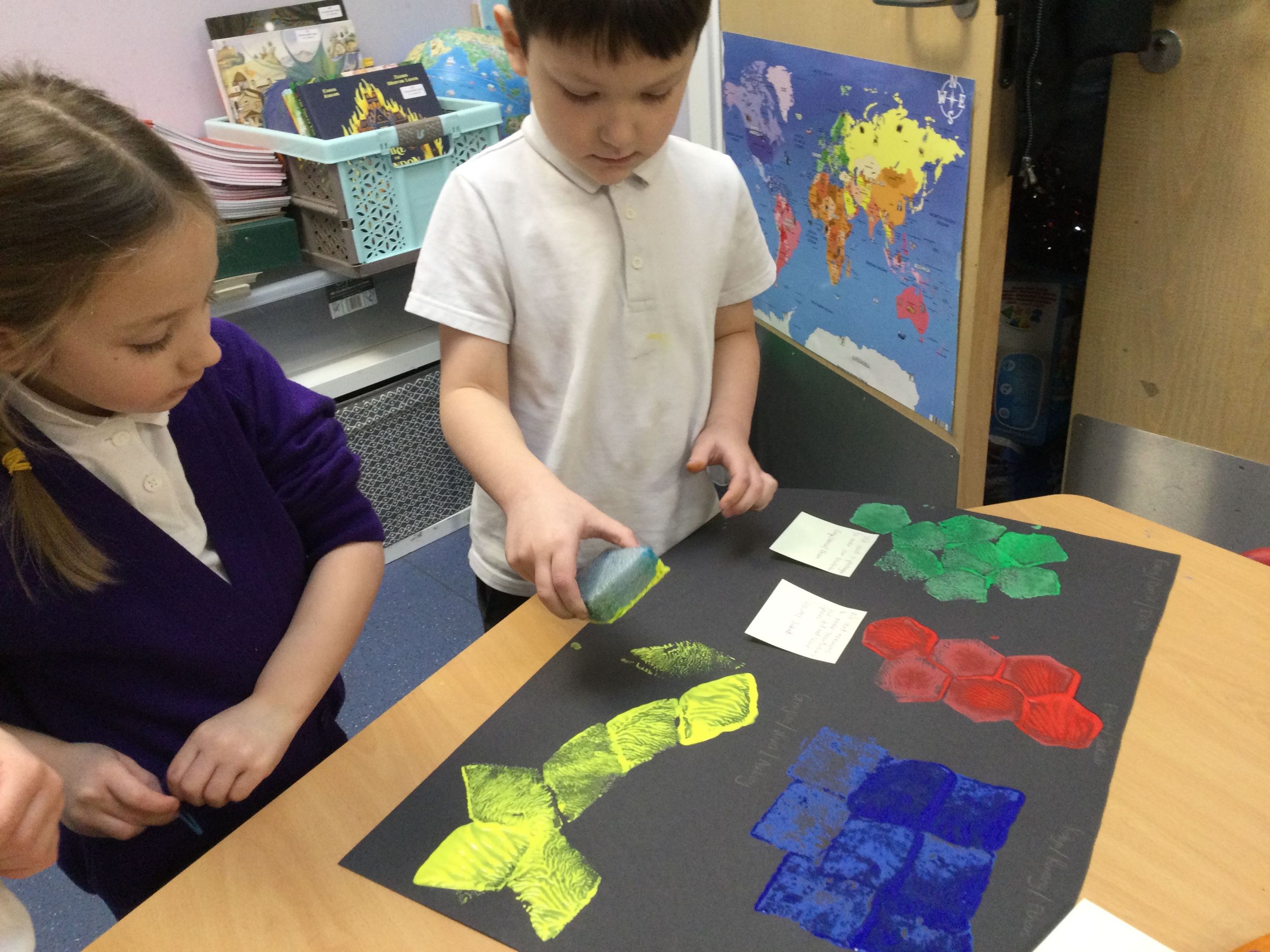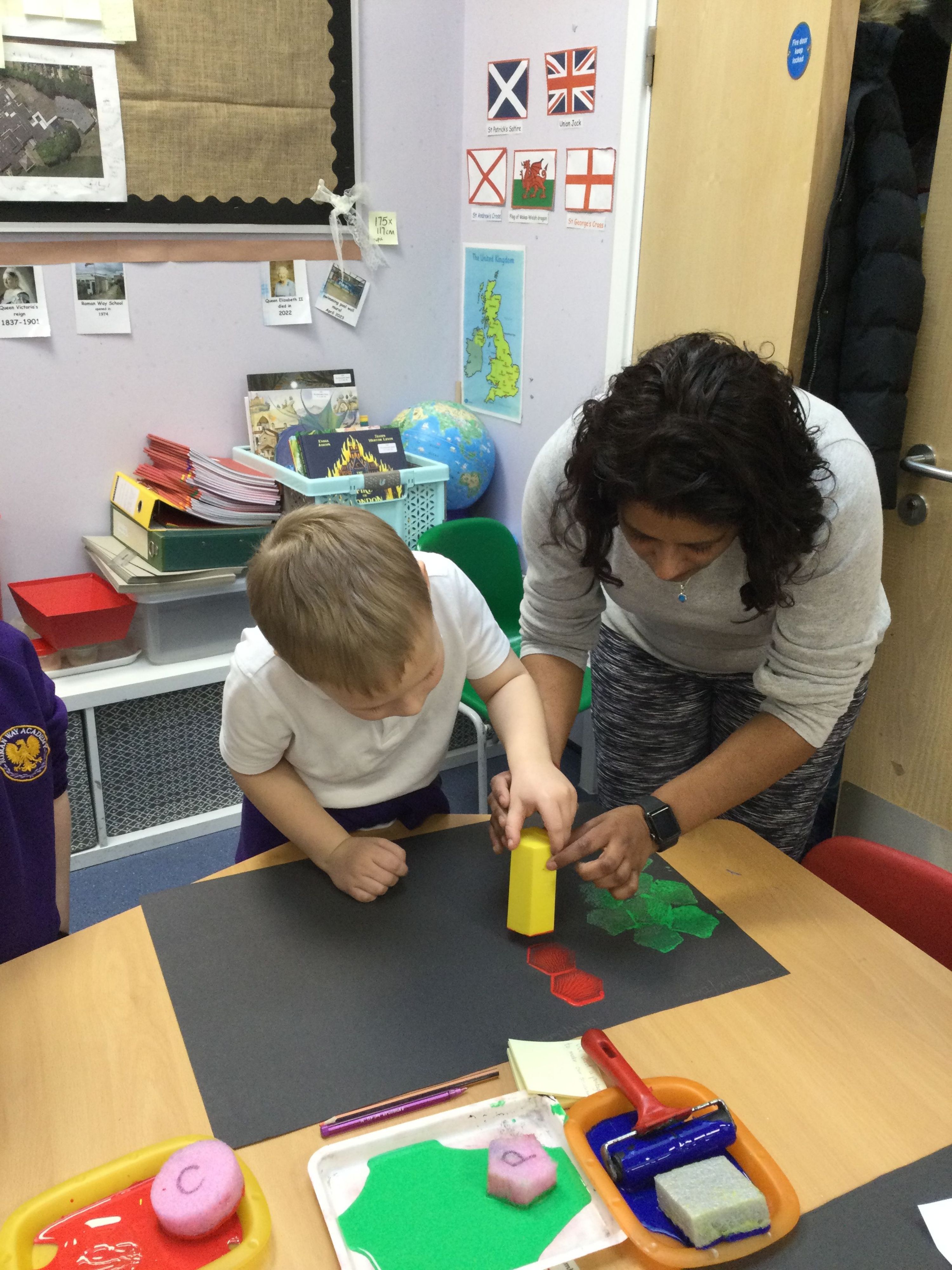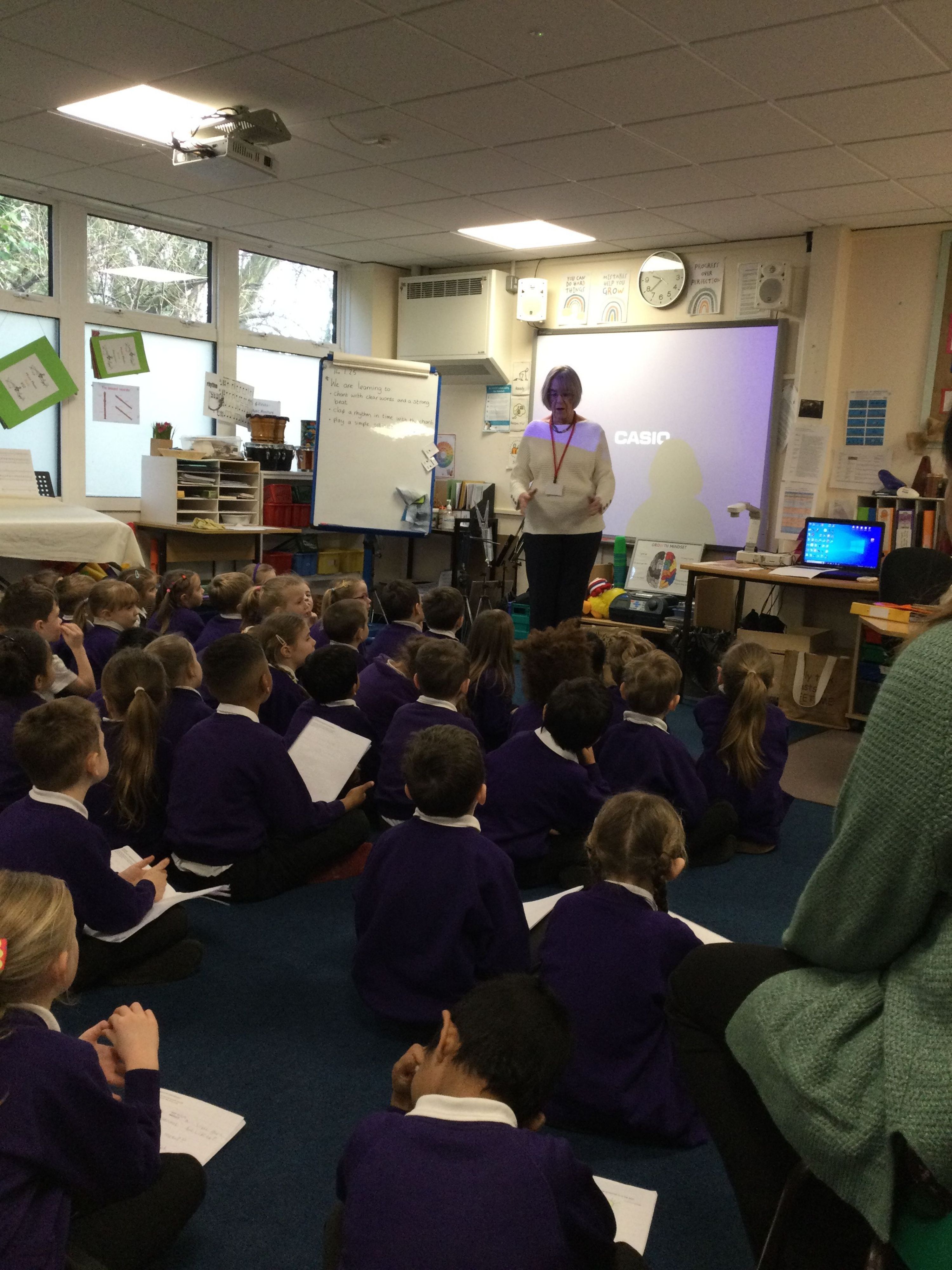Hedgehogs (Year 2)
Click here to view our termly Curriculum Overview.
13.1.2025
ART & MATHS DAY
Today we had an Art & Maths day. We learnt about the work of some artists and looked at the mathematical skills they used in their work, and then we created our own Art & Maths representations.
When learning about Piet Mondrian, we looked at the types of lines (horizontal & vertical), shapes and colours he used in his famous 'Composition with red, blue and yellow' art work.
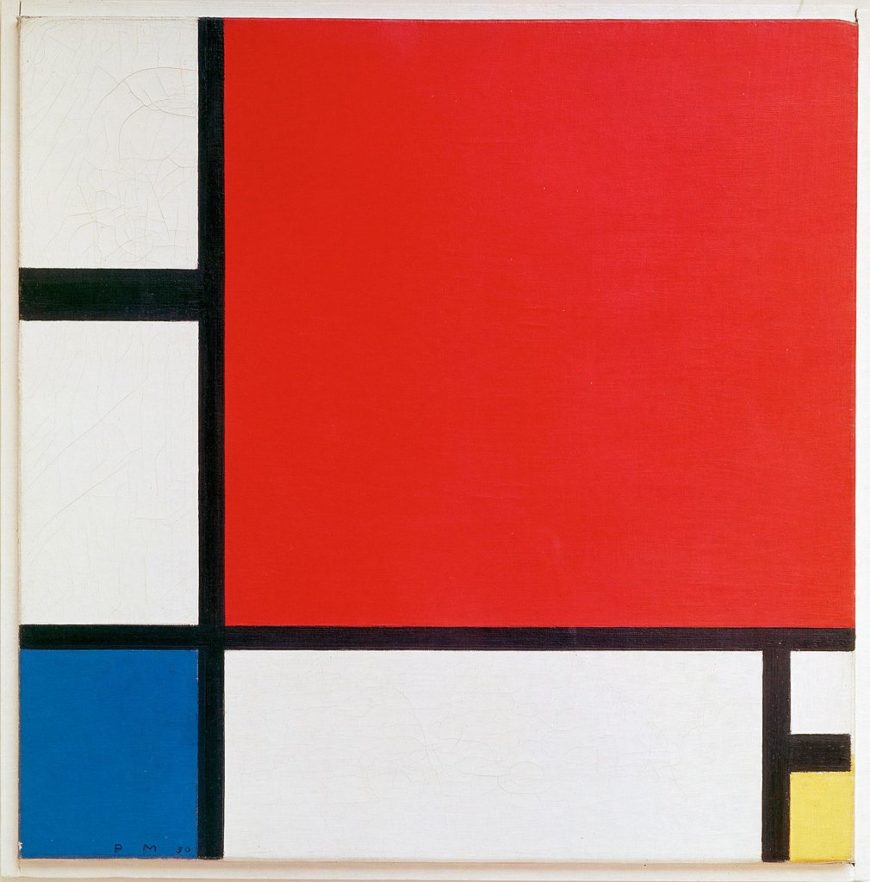
We learnt about the place value of 3-digit numbers and created some of our own art work based on Mondrian's work using the Hundreds, Tens and Ones base ten resources. We wrote what 3-digit number we made.
We also had some sheets with some Hundreds, Tens and Ones drawn and we had to guess what 3-digit number was represented. We used primary colours, white and black, like Mondrian to complete our work using different media.
We then learnt about M.C. Escher and how he used tessellations to create his work. We used foam shapes and created our own printing.
14.1.2025
Interview with a visitor to find out about the past
This term in History we are learning 'How was school different in the past?'. As part of our historical enquiry, we had to think of how we could find out what school was like for our grandparents and parents. We suggested that we can use books, look at artefacts, search the internet and ask people questions as this would be within 'living memory'.
Today we interviewed Mrs Jones, who is our reading volunteer, to find out about what school was like when she was a little girl.
We wrote some questions we wanted to ask her and during her talk she was able to answer most of our questions.
She told us all about how it was different to how it is now. She showed us some books that she read at school when she was little and the games she played on the school playground.
